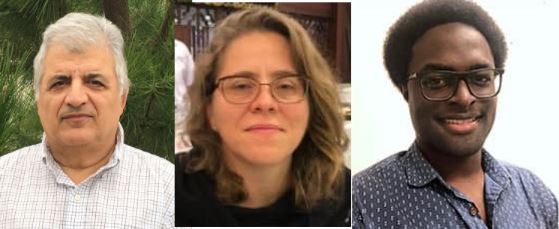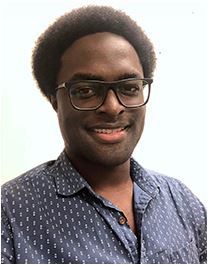
Schmid Faculty Receive 2021 Faculty Opportunity Funding Congrats to Daniel Alpay, Mihaela Vajiac, and Maduka Ogba.
May 17, 2021
On April 29th, the Offices of the President, the Provost, and the Vice President for Research announced the recipients of the 2021 Faculty Opportunity Fund Awards. The Faculty Opportunity Fund program was established to support faculty in the development of new and innovative research, scholarship, and creative activity.
This year, out of 40 proposals submitted, 16 were awarded with Schmid College receiving 2 awards. Learn more below about the research projects that were chosen.
Congratulations to all those who were awarded this year!
Hypercomplex Neural Networks ($15,000)
Daniel Alpay, Schmid College of Science and Technology
Mihaela Vajiac, Schmid College of Science and Technology
The impact of Neural Networks in today’s scientific community cannot be denied, its vast applications, from engineering to medicine to artificial intelligence, these are based on continuously improving algorithms. This motivated us to start our approach towards the creation of a mathematical basis for the field of Hypercomplex Neural Networks which could bring better, faster algorithms, and be useful in a wide range of computations, from improving image and signal processing to a better understanding of the world we live in. In the underlying mathematical theories, the choice of a system of constants plays an important role, and advancing from a theory built on real numbers to hypercomplex ones is bound to give improved algorithms, due to the rich analysis of the field. This is not simply a conjecture on our part, since, in both the commutative and the anti-commutative hypercomplex theories we can see elements that are highly suitable for the building of a hypercomplex theory. For example, we expect that the 0−divisors existing in the commutative case will improve computations by a significant factor. We will go beyond the theory of complex numbers to improve current algorithms used and develop new ones. This project is quite timely, as there exist several research groups within our university that are continuously using applications of Machine Learning in their various fields and any improvement in the algorithms used will also smooth their research paths.
Developing Models and Techniques for Investigating Reactivity at Metal-Sulfur Centers ($14,616)
Maduka Ogba, Schmid College of Science and Technology
 Metal-sulfur centers play central roles in several important chemical processes within biological systems. These include serving as the first stop in signaling cascades within bacterial pathogens upon neutrophilic bursts of oxidants by animal host, and serving as biological catalysts for facilitating hydrogen evolution and uptake. The exquisite reactivity at these biological metal-sulfur centers has spurred decades of efforts by chemists to understand and harness the reactivity in non-biological settings. However, efforts at designing synthetic systems in a rational way are hampered due, in part, to the challenge faced in systematically dissecting and identifying the role each component of the complex biological system plays in facilitating the chemical reaction. In this proposal, our group seeks to develop models and techniques for investigating the chemical reactivity around metal-sulfur centers. We seek to build and leverage informatics and automation tools to address known ‘big-data’ bottlenecks that have hindered chemists, including us, from studying complex metal-sulfur systems. We propose strategies for assessing models of biological metal-sulfur complexes for the purpose of developing metrics for designing novel synthetic variants.
Metal-sulfur centers play central roles in several important chemical processes within biological systems. These include serving as the first stop in signaling cascades within bacterial pathogens upon neutrophilic bursts of oxidants by animal host, and serving as biological catalysts for facilitating hydrogen evolution and uptake. The exquisite reactivity at these biological metal-sulfur centers has spurred decades of efforts by chemists to understand and harness the reactivity in non-biological settings. However, efforts at designing synthetic systems in a rational way are hampered due, in part, to the challenge faced in systematically dissecting and identifying the role each component of the complex biological system plays in facilitating the chemical reaction. In this proposal, our group seeks to develop models and techniques for investigating the chemical reactivity around metal-sulfur centers. We seek to build and leverage informatics and automation tools to address known ‘big-data’ bottlenecks that have hindered chemists, including us, from studying complex metal-sulfur systems. We propose strategies for assessing models of biological metal-sulfur complexes for the purpose of developing metrics for designing novel synthetic variants.



